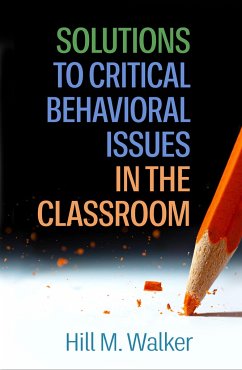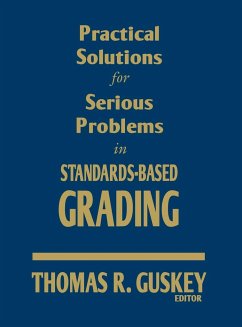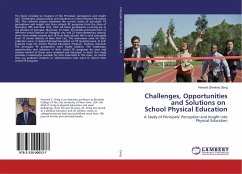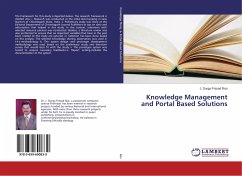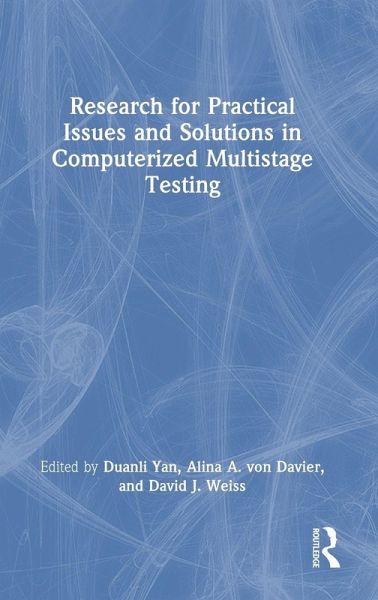
Gebundenes Buch
Research for Practical Issues and Solutions in Computerized Multistage Testing
Versandkostenfrei!
Versandfertig in 1-2 Wochen

PAYBACK Punkte
102 °P sammeln!




This volume presents a comprehensive collection of the latest research findings supporting the current and future implementations and applications of computerized multistage testing (MST).
Duanli Yan is a Director of Computational Research at Educational Testing Services, Princeton, New Jersey, USA. She is also an adjunct professor at Rutgers University and Fordham University and has extensive experience in innovative psychometric research and development. She has published many books and received many awards, including the 2016 AERA D Significant Contribution to Educational Measurement and Research Methodology Award, and the 2022 and 2023 NCME Bradley Hanson Award. Alina A. von Davier is the Chief of Assessment at Duolingo, Pittsburgh, Pennsylvania, USA. She leads the Duolingo English Test research and development area. She is a researcher in computational psychometrics, machine learning, and education. Von Davier is an innovator and an executive leader with over 20 years of experience in EdTech and in the assessment industry. In 2022, she joined the University of Oxford as an Honorary Research Fellow, and Carnegie Mellon University as a Senior Research Fellow. David J. Weiss is a Professor of Psychology at University of Minnesota, Minnesota, USA. He has been continuously active in computerized adaptive testing (CAT) research since 1970, including hosting six international CAT conferences. He co-founded the International Association for Computerized Adaptive Testing, the Assessment Systems Corporation, and the Insurance Testing Corporation and was the founding editor of Applied Psychological Measurement and the Journal of Computerized Adaptive Testing.
Produktdetails
- Verlag: Routledge
- Seitenzahl: 516
- Erscheinungstermin: 27. Dezember 2024
- Englisch
- Abmessung: 240mm x 161mm x 32mm
- Gewicht: 933g
- ISBN-13: 9780367207809
- ISBN-10: 036720780X
- Artikelnr.: 71186151
Herstellerkennzeichnung
Libri GmbH
Europaallee 1
36244 Bad Hersfeld
gpsr@libri.de
Für dieses Produkt wurde noch keine Bewertung abgegeben. Wir würden uns sehr freuen, wenn du die erste Bewertung schreibst!
Eine Bewertung schreiben
Eine Bewertung schreiben
Andere Kunden interessierten sich für






